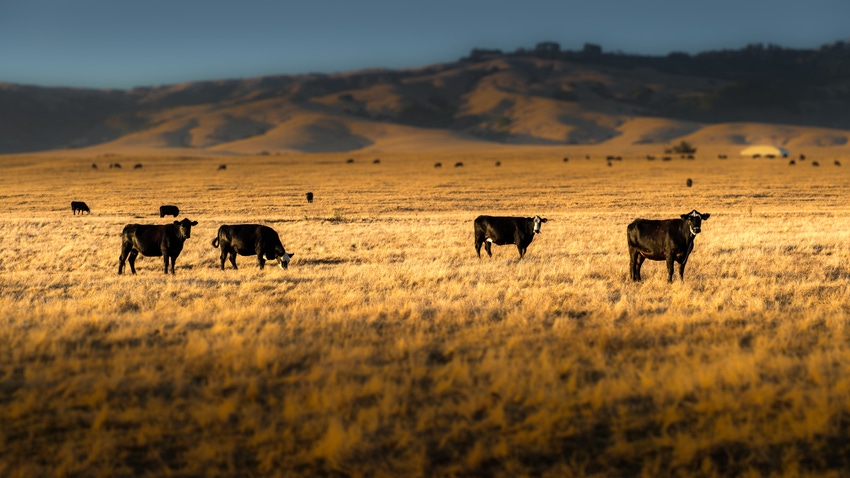- Livestock & Poultry Market news
- Nutrition & Health
- Beef Health and Nutrition
- Swine Health and Nutrition
APHIS issues draft select agent policy statement on studying brucella species in large animals in outdoor settings.
October 14, 2020

The U.S. Department of Agriculture’s Animal & Plant Health Inspection Service (APHIS) has issued a draft policy statement through the Federal Select Agent Program (FSAP) on research with Brucella species in outdoor settings.
APHIS said the policy statement will allow researchers to conduct brucellosis studies in large animals that cannot be easily housed or studied indoors. The ability to conduct outdoor host animal studies involving swine, elk, bison and cattle will help APHIS gain important tools and information to continue with brucellosis eradication, the announcement said.
“At the request of Sen. Steve Daines (R., Mont.), animal health experts and livestock industry stakeholders, we have worked closely with the Centers for Disease Control & Prevention, the Department of Homeland Security and other leaders in the Greater Yellowstone Area to ensure we can safely conduct the kinds of outdoor research studies we need in order to advance our ability to control and eradicate brucellosis,” USDA undersecretary for marketing and regulatory programs Greg Ibach said. “I’m happy to share this draft policy today, as it will help us continue eradication efforts in key wildlife areas.”
USDA’s Cooperative State Federal Brucellosis Eradication Program made significant progress in eliminating this disease from most of the country, APHIS said. Production losses due to brucellosis have dropped from more than $400 million in 1952 to less than $1 million today. However, continued advances are still needed, because endemic Brucella abortus is expanding its range in the Greater Yellowstone Area, and Brucella suis is being found in more feral swine populations throughout various areas of the U.S., the agency said.
APHIS said these developments emphasize "a critical need for both improved diagnostics and vaccine development related to wildlife." Traditional studies will not work for wildlife species, but this draft policy statement provides an outline for how to safely conduct outdoor studies. The information gathered from these types of studies will help both wildlife managers and livestock producers across the country while still addressing the need to handle brucella according to select agent requirements.
"This development is an important step in the right direction,” Montana state veterinarian Dr. Marty Zaluski said. “We need to continue efforts to ease regulatory restrictions that are preventing critical research to solve the problem of brucellosis in the Greater Yellowstone Area.”
Select agents, including brucella, are subject to regulations on storage, use and movement in order to protect the American public and agriculture, APHIS said, adding that the new draft policy outlines the information researchers must provide to FSAP in order for their study to be approved. APHIS’s Agriculture Select Agent Services team will provide support to researchers by reviewing their research plans for compliance with FSAP regulations.
The draft policy statement is available on the FSAP website and will also be published in the Federal Register to seek public comments.
APHIS said due to the length of the review process, facilities wishing to pursue these types of studies can begin the planning process using this draft policy; however, changes to the policy may occur based on the Federal Register process.
Dwight Keller, chairman of the U.S. Cattlemen’s Assn. (USCA) animal health and identification committee, said, “For years, USCA and other animal health leaders have called for the allowance of brucella research to study vaccine responses to natural infections in cattle, swine, elk or bison. However, the inclusion of certain brucella strains on the U.S. Select Agents & Toxins List has severely limited the ability of researchers to perform these kinds of studies. In 1996, the U.S. had 11 facilities capable of performing this type of research. Now, there is no such facility capable of studying large mammals in containment while also following proper biosecurity protocols.
“Though certain brucella strains will remain on the select agents list, this recent announcement by USDA-APHIS broadens the scope of possibilities by allowing for the consideration of brucella research in outdoor settings by (FSAP) -- something that multiple state veterinarians and members of USCA’s animal health committee have advocated for. USCA commends USDA-APHIS for taking this important first step towards the eradication of brucellosis in domestic animals and wildlife.”
You May Also Like


.png?width=300&auto=webp&quality=80&disable=upscale)
